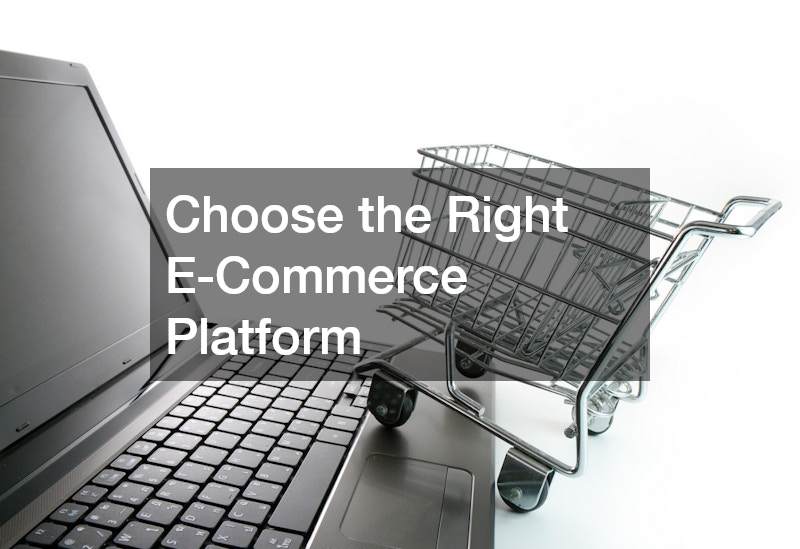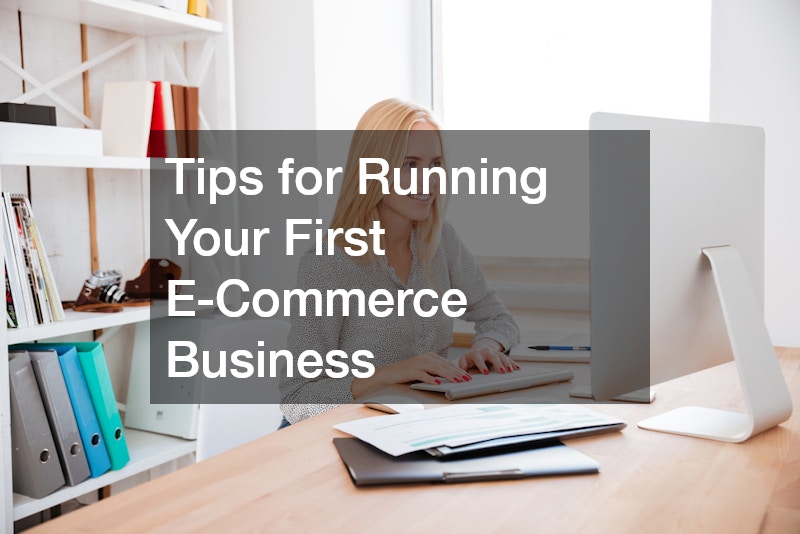Starting your first e-commerce business is an exciting journey filled with opportunities for growth and creativity. However, it also comes with its own set of challenges, from managing logistics to providing excellent customer service. To set yourself up for success, it’s essential to plan strategically and adopt best practices that cater to your business goals and customers’ needs.
In this guide, we’ll explore practical tips for managing your first e-commerce business, with a special focus on efficient logistics solutions like custom product fulfilment to streamline your operations and enhance customer satisfaction.
1. Define Your Niche and Target Audience
Before launching your e-commerce store, clearly define your niche and identify the audience you want to serve. A well-defined niche allows you to focus your marketing efforts and differentiate yourself from competitors.
How to Identify Your Niche
- Consider your interests and expertise.
- Research market trends and gaps in the industry.
- Assess the demand and profitability of your chosen niche.
Knowing your target audience’s needs and preferences will guide your product selection, branding, and marketing strategies.
2. Choose the Right E-Commerce Platform

Selecting the right platform is crucial for building a user-friendly and efficient online store. Popular platforms like Shopify, WooCommerce, and BigCommerce offer tools to manage inventory, process payments, and customise your store’s design.
Key Features to Look For
- Ease of use for beginners.
- Integration capabilities with logistics providers for custom product fulfilment.
- Scalability to grow with your business.
Your platform should align with your business model and long-term goals.
3. Develop a Strong Brand Identity
Your brand is the foundation of your e-commerce business. It sets the tone for how customers perceive your store and helps build trust and loyalty.
Tips for Building Your Brand
- Create a memorable logo and cohesive visual identity.
- Develop a unique selling proposition (USP) that highlights what makes your store special.
- Use consistent messaging across your website, social media, and marketing materials.
A strong brand makes your business more recognisable and appealing to your target audience.
4. Offer High-Quality Products
The success of your e-commerce business largely depends on the quality of your products. Ensure that the items you sell meet customer expectations and reflect your brand’s values.
How to Source Quality Products
- Partner with reliable suppliers and manufacturers.
- Conduct quality checks before listing products on your store.
- Consider offering customised items to stand out.
For businesses offering personalised goods, partnering with a custom product fulfilment provider ensures that products are tailored to customer specifications and delivered efficiently.
5. Streamline Order Fulfilment and Shipping
Efficient order fulfilment and shipping are critical to maintaining customer satisfaction. Late or incorrect deliveries can harm your reputation and lead to negative reviews.
Why Custom Product Fulfilment Matters
With custom product fulfilment, you can outsource warehousing, packaging, and shipping to a third-party provider that specialises in handling personalised or unique items. This allows you to:
- Reduce operational complexity.
- Focus on growing your business instead of managing logistics.
- Ensure that each order meets customer expectations.
Investing in a reliable fulfilment partner streamlines your operations and enhances your customers’ shopping experience.
6. Implement Effective Marketing Strategies
Attracting and retaining customers is a priority for any e-commerce business. A strong marketing strategy helps you reach your target audience and convert visitors into loyal customers.
Proven Marketing Techniques
- Search Engine Optimisation (SEO): Optimise your website for relevant keywords to increase organic traffic.
- Social Media Marketing: Use platforms like Instagram and Facebook to showcase products and engage with your audience.
- Email Campaigns: Send personalised emails with product recommendations and exclusive discounts.
Experiment with different strategies to find what resonates most with your audience.
7. Prioritise Customer Experience
Exceptional customer service and a seamless shopping experience are key to building a loyal customer base.
Tips for Improving Customer Experience
- Provide clear and accurate product descriptions.
- Offer multiple payment and shipping options.
- Respond promptly to customer inquiries and resolve issues efficiently.
For personalised goods, working with a custom product fulfilment provider ensures that each order is handled with care, reinforcing a positive customer experience.
8. Monitor Inventory and Manage Stock
Proper inventory management prevents issues like stockouts or overstocking, both of which can affect your profitability.
Tools for Inventory Management
- Use inventory software to track stock levels in real-time.
- Analyse sales trends to forecast demand accurately.
- Collaborate with a fulfilment partner to manage storage and stock replenishment.
Efficient inventory management ensures that your store runs smoothly and that customers can always find what they need.
9. Leverage Analytics to Drive Growth

Data analytics provide valuable insights into your e-commerce business, helping you make informed decisions to optimise performance.
Metrics to Track
- Conversion Rate: The percentage of visitors who complete a purchase.
- Average Order Value (AOV): The average amount spent per transaction.
- Customer Lifetime Value (CLV): The total revenue generated by a customer over time.
Use analytics to identify areas for improvement, such as refining your marketing campaigns or adjusting product pricing.
10. Scale Your Business Strategically
Once your e-commerce business is established, focus on scaling to reach new markets and increase revenue.
Strategies for Scaling
- Expand your product range or introduce complementary items.
- Offer international shipping to reach a global audience.
- Partner with a custom product fulfilment provider to handle increased order volumes efficiently.
Scaling strategically ensures sustainable growth while maintaining quality and customer satisfaction.
11. Stay Adaptable and Innovative
The e-commerce landscape is constantly evolving, with new trends and technologies shaping consumer behaviour. Staying adaptable and open to innovation helps your business stay competitive.
How to Stay Ahead
- Monitor industry trends and incorporate relevant updates into your store.
- Invest in new technologies, such as AI-driven recommendations or augmented reality (AR) for product visualisation.
- Regularly seek feedback from customers to improve your offerings.
Running your first e-commerce business is a rewarding experience that requires careful planning, consistent effort, and a customer-focused approach. By defining your niche, streamlining logistics with solutions like custom product fulfilment, and prioritising customer experience, you can build a successful online store that stands out in a competitive market.
Remember, e-commerce is a journey of continuous learning and adaptation. Stay committed to improving your operations and delivering value to your customers, and you’ll be well on your way to achieving long-term success.

